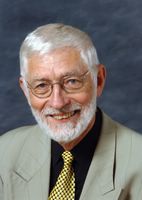 Q, carried out last year, it practically came to be an implementation of two actions with high priority (Institutional capacity building and Mutual awareness building). The need assessment was based on a shallow questionnaire and deepening interviews during visits to the Member States. During two missions, 12 of 14 CROSQ Member States were visited. During the second mission I was accompanied by Håkan Källgren, Swedish Metrology and Quality, as an expert in metrology and conformity assessment. All National Standards Bodies were visited, and most visits also contained meetings with Business Support Organizations.
Q, carried out last year, it practically came to be an implementation of two actions with high priority (Institutional capacity building and Mutual awareness building). The need assessment was based on a shallow questionnaire and deepening interviews during visits to the Member States. During two missions, 12 of 14 CROSQ Member States were visited. During the second mission I was accompanied by Håkan Källgren, Swedish Metrology and Quality, as an expert in metrology and conformity assessment. All National Standards Bodies were visited, and most visits also contained meetings with Business Support Organizations.In St Kitts and Nevis there was also arranged meetings with enterprises (St Kitts Botteling Company, Sun Island Clothing Ltd).

The analysis of the need assessment resulted in a proposed Regional Training Progra
 mme and an Implementation plan for the programme. This proposal was validated by two participants from each Member State in a validation workshop in Barbados on the 6 December 2010.
mme and an Implementation plan for the programme. This proposal was validated by two participants from each Member State in a validation workshop in Barbados on the 6 December 2010.



